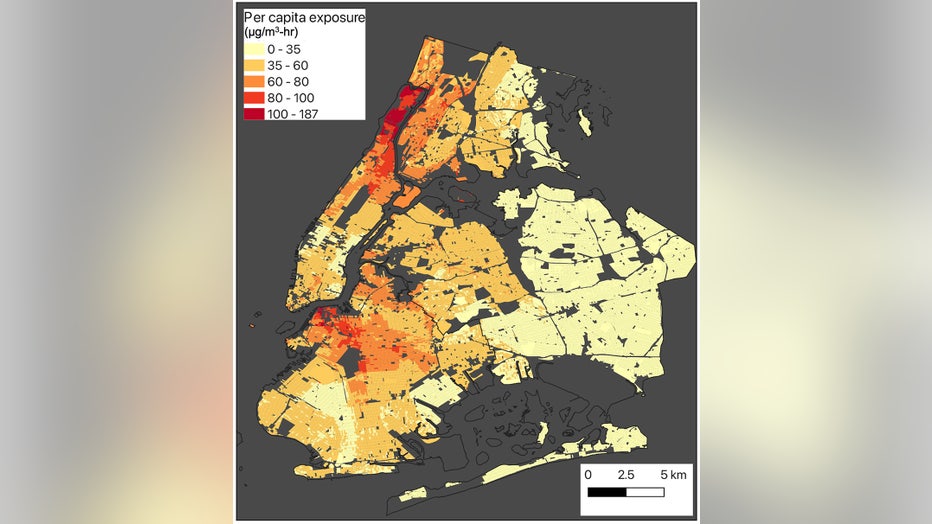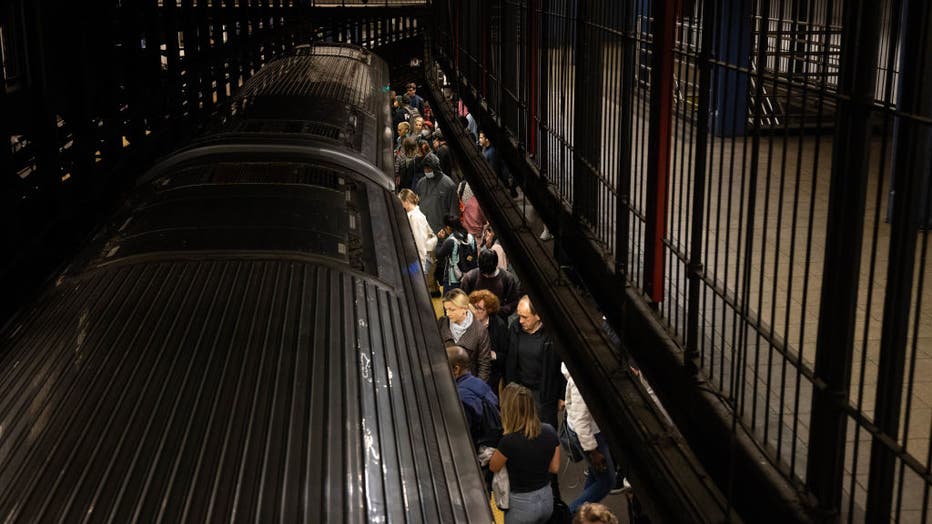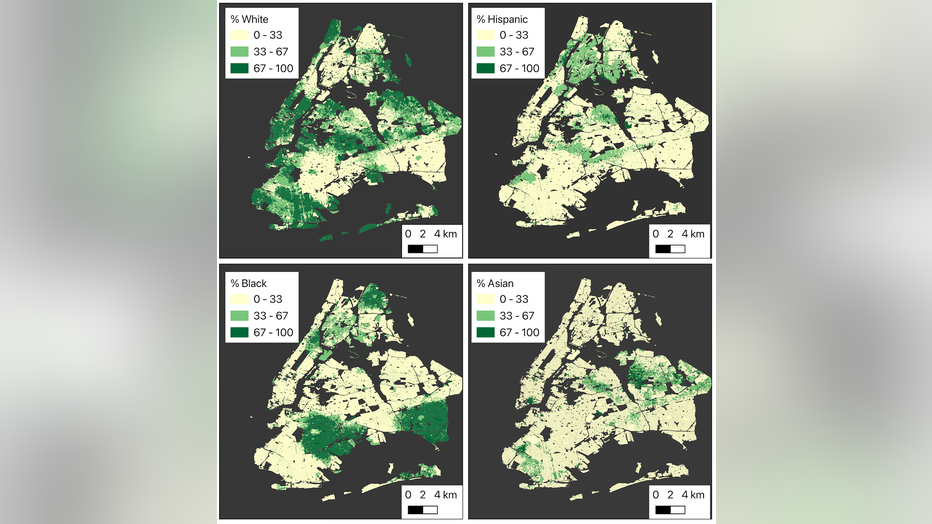NYC subway riders exposed to toxic air: Study

NYC subway riders exposed to toxic air: Study
A new study from NYU highlights how New York City subway commuters are exposed to toxic air – and how Black and Hispanic people are disproportionately affected. FOX 5 NY's Robert Moses reports.
NEW YORK CITY - A new study conducted by NYU researchers highlights how New York City subway commuters are exposed to toxic air – and how Black and Hispanic people are disproportionately affected.
"The New York City (NYC) subway system accommodates 5.5 million daily commuters, and the environment within the subway is known to have high concentrations of fine particulate matter (PM2.5) pollution," the study, published in the peer-reviewed PLOS One journal, asserted.

The research team, led by Shams Azad, Pau Ferrer-Cid and Masoud Ghandehari, measured fine particulate matter concentration on station platforms and inside train cabins by taking a round trip of each subway line and collecting samples.
They concluded that air quality can be up to 15 times worse than World Health Organization guidelines say it should be.
"I think it's very poor," a subway commuter told FOX 5 NY.
"It's pretty humid and nasty year round," another subway commuter said.
Black and Hispanic commuters face 35% more polluted air than Asian commuters, researchers found, and 23% more polluted than white riders.

Commuters at the Union Square subway station in New York, US, on Friday, May 19, 2023. New York City Transit reported 12.4 million people entered the subway during the last work week, down 1.5% from the previous week. Photographer: Yuki Iwamura/Bloom
According to the research team, Black and Hispanic commuters tend to live further from their jobs, which means more time spent transferring, waiting on platforms, and breathing in tiny metal particulates generated by break applications as well as friction between wheels and rails.
When trains pull into the stations, they kick up the accumulated dust which customers then inhale.

"This recycled 'study' based on years-old 'data' has long since been debunked," MTA Communications Director Tim Minton said in a statement. "Every serious person knows transit is the antidote to climate change, the one reason NYC is the greenest city around, and an engine of equity for people of all communities who need an affordable, safe way to get to jobs, schools and opportunities of every kind."
NYU researchers urged the agency to clean up the dust that has built up in stations over the years. They also said if you are worried about the air you're breathing, wear a high-quality mask.
"It's so hot, I don't even want to wear a mask, to be honest," a subway commuter said.

